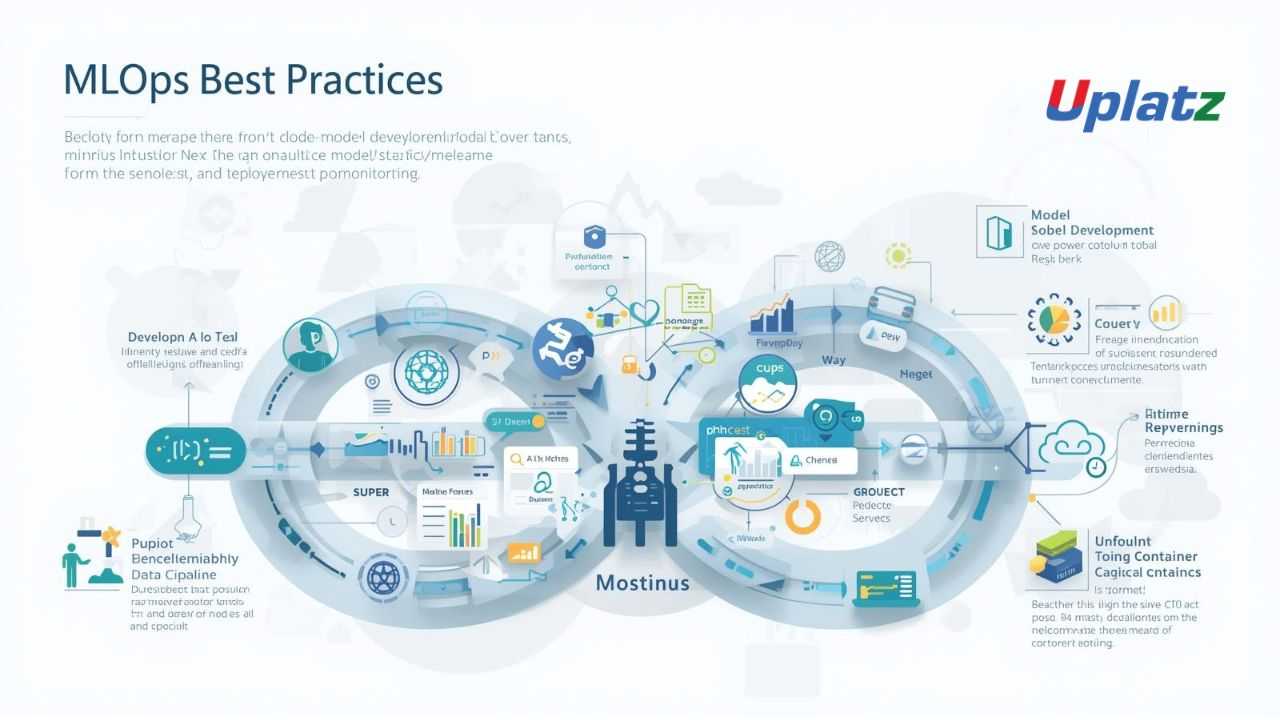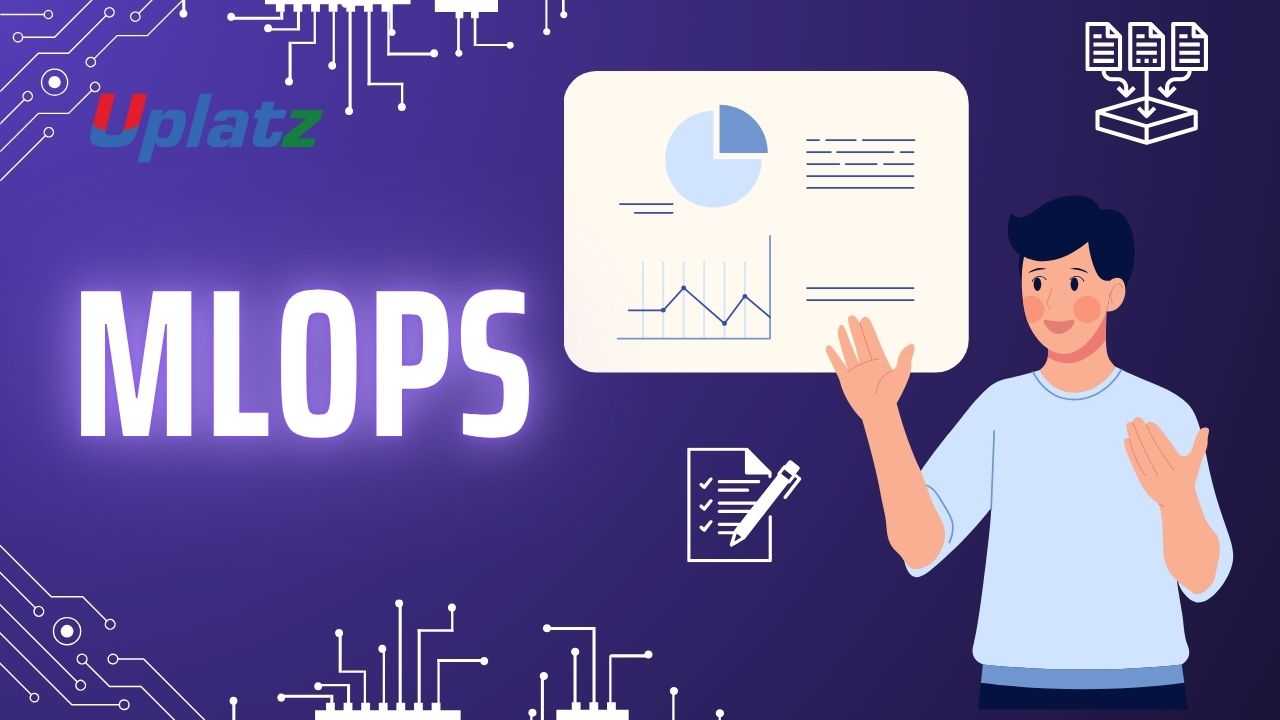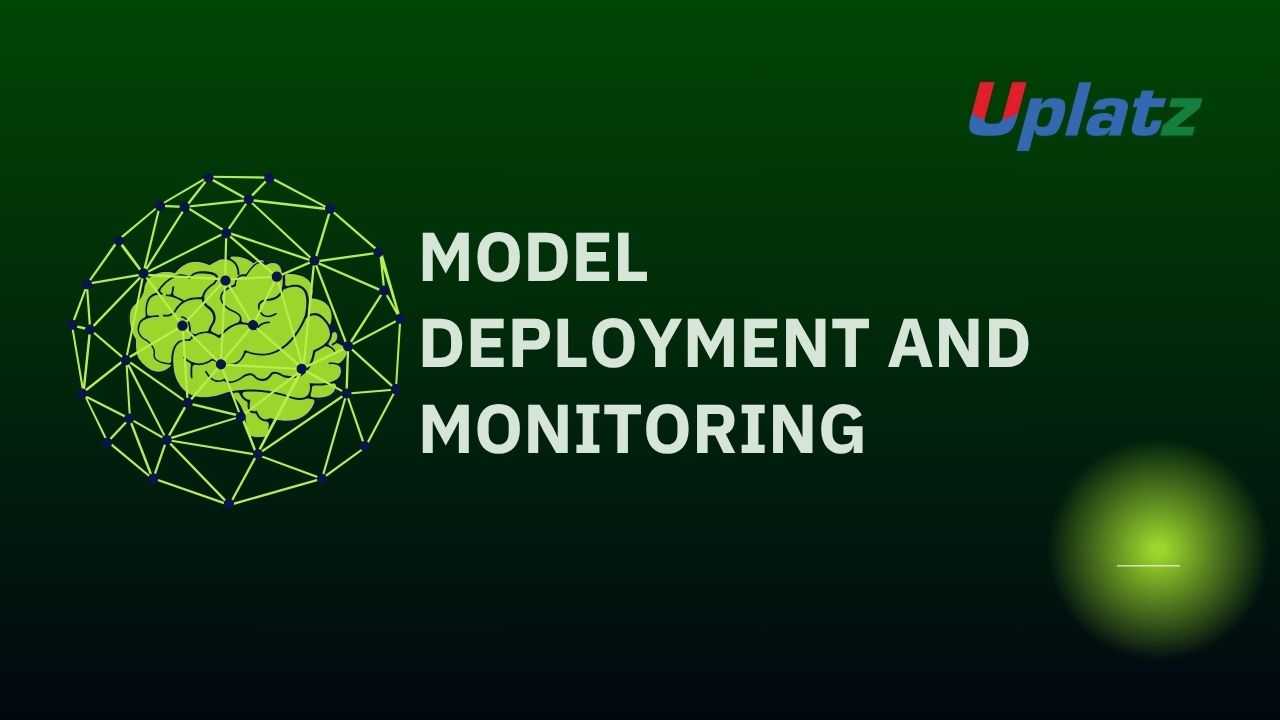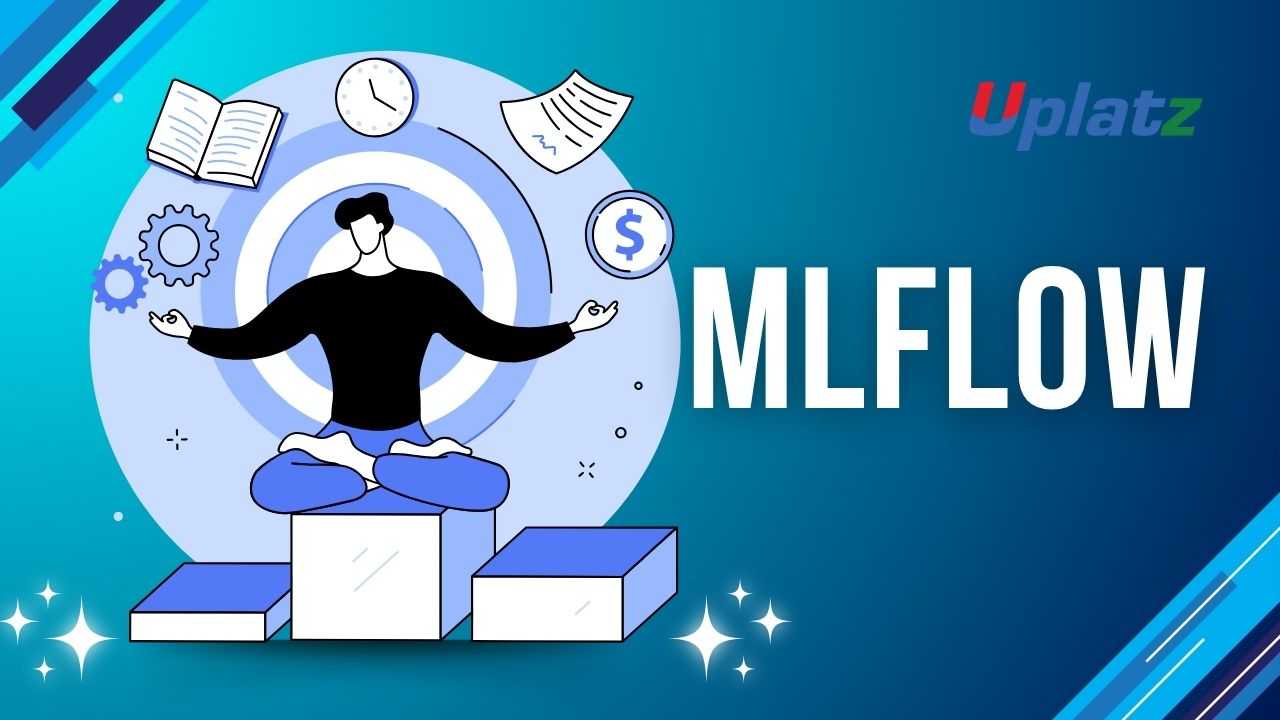MLOps Best Practices
Master the lifecycle of machine learning models—from development to deployment and monitoring at scale. Price Match Guarantee
Full Lifetime Access
Access on any Device
Technical Support
Secure Checkout
Course Completion Certificate
Price Match Guarantee
Full Lifetime Access
Access on any Device
Technical Support
Secure Checkout
Course Completion Certificate
 92% Started a new career
BUY THIS COURSE (
92% Started a new career
BUY THIS COURSE (GBP 12 GBP 29 )-
 81% Got a pay increase and promotion
81% Got a pay increase and promotion
Students also bought -
-

- MLOps
- 10 Hours
- GBP 29
- 10 Learners
-

- Model Deployment and Monitoring
- 10 Hours
- GBP 29
- 10 Learners
-

- MLflow
- 10 Hours
- GBP 29
- 10 Learners

MLOps Best Practices is a specialized, end-to-end course designed to help professionals operationalize machine learning systems efficiently, securely, and at scale. It blends the principles of machine learning, DevOps, data engineering, and software reliability engineering to create a unified framework for developing, deploying, and maintaining AI models in production environments.
This Uplatz course provides a comprehensive roadmap for managing the complete ML lifecycle, covering everything from data preparation and model experimentation to deployment, monitoring, and retraining. You’ll learn to use powerful open-source and cloud-native tools such as MLflow, Kubeflow, Airflow, DVC, Docker, and Kubernetes to automate and standardize every phase of the workflow.
With a strong emphasis on industry best practices, the course equips learners with both conceptual understanding and hands-on implementation experience in CI/CD for ML, model governance, version control, reproducibility, and performance optimisation. By mastering MLOps, you’ll gain the skills needed to bridge the gap between data science and production engineering — enabling your organisation to build reliable, scalable, and continuously improving AI systems.
What is MLOps?
MLOps (Machine Learning Operations) is the discipline that applies DevOps principles to machine learning. While traditional DevOps focuses on automating software deployment, MLOps focuses on automating and maintaining ML models in live production environments.
It combines processes, tools, and cultural practices to ensure seamless collaboration between data scientists, engineers, and IT operations teams. The goal is to streamline the path from research and experimentation to production, ensuring that machine learning models remain accurate, traceable, and scalable over time.
A well-designed MLOps system enables:
-
Continuous integration and delivery (CI/CD) for models and data.
-
Automated testing, validation, and monitoring of models in production.
-
Versioning for datasets, model files, and configuration scripts.
-
Efficient retraining cycles to adapt to new data.
-
Secure and governed deployment of AI systems.
In short, MLOps brings discipline, automation, and reliability to the entire AI lifecycle.
Why MLOps Matters
While many organizations can build machine learning models, few succeed in maintaining them effectively in production. Models often degrade over time due to data drift, changing environments, or poor version control. MLOps addresses these challenges by introducing automation, monitoring, and governance to ensure models continue performing reliably after deployment.
Without MLOps, AI systems can become inconsistent, untraceable, and costly to maintain. With MLOps, every step — from training to inference — becomes transparent, reproducible, and auditable.
By adopting MLOps, you can:
-
Deploy models faster with automated build, test, and release pipelines.
-
Monitor performance continuously to detect data drift or model decay.
-
Enable collaboration between teams through standardised processes and toolchains.
-
Ensure compliance and governance, critical for regulated industries.
-
Scale efficiently by using containerised infrastructure and cloud orchestration.
This approach has been embraced by top global companies like Google, Microsoft, Amazon, and Netflix, making MLOps one of the most sought-after skill sets in modern AI operations.
How MLOps Works
MLOps extends the traditional DevOps pipeline by introducing ML-specific steps:
-
Data Management: Collect, clean, and version datasets to ensure consistency and reproducibility.
-
Model Development: Use frameworks like TensorFlow, PyTorch, or Scikit-learn for experimentation and training.
-
Model Validation: Test models for accuracy, fairness, and stability before deployment.
-
Model Deployment: Use CI/CD pipelines, containerization, and orchestration tools like Docker and Kubernetes to move models into production.
-
Model Monitoring: Track prediction accuracy, latency, and data drift in real time.
-
Model Retraining: Automatically trigger retraining workflows when performance drops or data patterns shift.
Each phase is supported by automation and observability, allowing teams to scale ML systems predictably and safely.
Why Learn MLOps Best Practices?
Learning MLOps Best Practices enables professionals to move from experimentation to real-world AI deployment confidently. This course empowers you to design and manage pipelines that bring automation, traceability, and governance to the heart of your machine learning workflows.
By mastering MLOps, you will:
-
Operationalize ML models across diverse environments (on-premise, cloud, or hybrid).
-
Integrate data pipelines with version control and workflow automation.
-
Adopt CI/CD practices specific to machine learning.
-
Monitor and optimize performance post-deployment.
-
Ensure compliance, security, and explainability of AI systems.
-
Collaborate effectively across multidisciplinary teams.
In a world where AI solutions must scale rapidly, MLOps ensures your models don’t just work — they keep working reliably in production.
Key Tools and Technologies You’ll Learn
This course provides hands-on experience with the most widely used MLOps tools in the industry:
-
MLflow – For experiment tracking, model versioning, and deployment.
-
Kubeflow – For orchestrating ML workflows on Kubernetes.
-
Apache Airflow – For workflow automation and scheduling.
-
DVC (Data Version Control) – For managing data and model versions in Git-like workflows.
-
Docker & Kubernetes – For containerisation and large-scale deployment.
-
GitHub Actions & Jenkins – For CI/CD pipelines.
-
Prometheus & Grafana – For monitoring and logging.
You’ll also gain insights into cloud MLOps platforms such as AWS SageMaker, Google Vertex AI, and Azure ML.
What You Will Gain
By completing this course, you will be able to:
-
Understand MLOps architecture and its role in modern AI infrastructure.
-
Design and implement end-to-end MLOps pipelines.
-
Automate model training, testing, and deployment workflows.
-
Manage data, code, and model versioning for reproducibility.
-
Apply CI/CD principles to continuous model delivery.
-
Deploy scalable systems using Docker and Kubernetes.
-
Monitor model health and automate retraining cycles.
-
Enforce governance, explainability, and responsible AI policies.
Hands-on Projects include:
-
Building a complete MLOps pipeline using MLflow and Airflow.
-
Deploying a containerised ML model on Kubernetes with CI/CD automation.
-
Implementing model monitoring and drift detection with real-time alerts.
-
Automating model retraining and version rollbacks.
Who Should Take This Course
This course is ideal for:
-
Data Scientists & ML Engineers transitioning from research to production deployment.
-
DevOps & Cloud Engineers integrating ML workflows into production systems.
-
Data Engineers automating pipelines for continuous model delivery.
-
AI Practitioners managing operational performance of deployed models.
-
Students & Professionals aiming for careers in AI deployment, data infrastructure, or cloud-based automation.
Basic familiarity with Python, Git, and machine learning concepts will help learners make the most of this course.
Why Choose Uplatz for MLOps Training
Uplatz’s MLOps Best Practices course offers a perfect blend of theory, implementation, and real-world relevance. You’ll gain hands-on experience through guided labs and practical case studies that mirror real enterprise workflows.
The course is continuously updated to reflect the latest industry trends, frameworks, and cloud-native tools used by AI teams worldwide. Whether your goal is to build robust ML pipelines or manage AI systems in production, this course equips you with the skills, tools, and confidence to succeed.
Final Thoughts
In today’s AI-driven world, the true challenge isn’t building models — it’s keeping them performant, secure, and scalable after deployment. MLOps is the missing link between experimentation and production success.
By completing this course, you will understand how to operationalize machine learning with precision and reliability, transforming your models into business-ready solutions. You’ll gain not just the technical expertise but also the strategic insight to manage AI systems end-to-end — from data to decisions.
With MLOps Best Practices, you’ll become the professional who ensures that machine learning innovations translate into long-term, sustainable impact.
By the end of this course, learners will be able to:
- Understand the end-to-end lifecycle of machine learning operations.
- Design scalable MLOps architectures for continuous integration and delivery.
- Implement data and model version control using DVC and MLflow.
- Automate model deployment and testing using CI/CD pipelines.
- Orchestrate ML workflows using Airflow, Kubeflow, and Prefect.
- Use containerization and orchestration (Docker, Kubernetes) for ML scalability.
- Monitor model drift, data quality, and system health in production.
- Apply governance, explainability, and compliance in MLOps pipelines.
- Implement retraining loops and feedback-driven automation.
- Optimize MLOps systems for performance, cost, and reliability.
Course Syllabus
Module 1: Introduction to MLOps and the ML Lifecycle
Overview of model development, deployment challenges, and operational needs.
Module 2: MLOps Architecture and Key Components
Pipelines, metadata, versioning, and automation layers in modern ML systems.
Module 3: Data Engineering for MLOps
Data version control (DVC), feature stores, and reproducible preprocessing workflows.
Module 4: Experiment Tracking and Model Management
Tracking experiments, hyperparameters, and results using MLflow and Weights & Biases.
Module 5: Continuous Integration and Delivery (CI/CD) for ML
Implementing CI/CD pipelines for model validation and deployment.
Module 6: Containerization and Orchestration
Using Docker, Kubernetes, and Helm for scalable ML model deployment.
Module 7: Workflow Orchestration with Airflow and Kubeflow
Scheduling and automating ML pipelines in production environments.
Module 8: Model Deployment Strategies
Batch, real-time, and streaming deployment architectures.
Module 9: Monitoring, Logging, and Model Drift Detection
Using Prometheus, Grafana, and custom scripts for performance tracking.
Module 10: Model Retraining and Continuous Learning
Automating feedback loops and lifecycle management for model updates.
Module 11: Responsible and Explainable MLOps
Integrating ethics, fairness, interpretability, and regulatory compliance.
Module 12: Capstone Project – End-to-End MLOps System
Build and deploy a complete MLOps pipeline integrating data ingestion, model training, deployment, and monitoring in a cloud or containerized environment.
Upon successful completion, learners will receive a Certificate of Mastery in MLOps Best Practices from Uplatz.
This certification validates your ability to design, implement, and manage production-grade ML pipelines and automation systems. It demonstrates your expertise in:
- Applying MLOps methodologies across the ML lifecycle.
- Deploying and maintaining scalable AI models in production.
- Ensuring reliability, reproducibility, and compliance in AI systems.
This credential confirms your readiness to operate as a Machine Learning Engineer, MLOps Specialist, or AI Infrastructure Architect, capable of building intelligent and sustainable ML operations.
Mastering MLOps opens high-demand roles across data, AI, and cloud infrastructure, such as:
- MLOps Engineer
- Machine Learning Engineer
- AI Infrastructure Specialist
- DevOps for AI Engineer
- Data Platform Engineer
- Cloud ML Architect
These roles are essential across industries where AI models drive decisions — including finance, healthcare, manufacturing, e-commerce, and SaaS — making MLOps one of the most lucrative and future-proof career domains.
- What is MLOps and why is it important?
MLOps combines machine learning and DevOps principles to automate and manage ML model lifecycles in production. - What are the main stages of the MLOps lifecycle?
Data collection, model training, testing, deployment, monitoring, and retraining. - How does MLOps differ from traditional DevOps?
MLOps handles dynamic data and models, requiring monitoring of drift and retraining — beyond code and infrastructure management. - What tools are used in MLOps?
MLflow, DVC, Kubeflow, Airflow, Docker, Kubernetes, and TensorFlow Extended (TFX). - What is model drift?
When a model’s performance degrades over time due to data or environment changes. - What is data versioning and why is it important?
Tracking changes in datasets ensures reproducibility and auditability of ML experiments. - What is CI/CD in the context of ML?
Continuous integration and delivery automate model testing and deployment, reducing manual intervention. - How can MLOps ensure model reproducibility?
Through consistent data pipelines, version control, and automated tracking of code, configurations, and dependencies. - What are common challenges in implementing MLOps?
Data silos, inconsistent environments, lack of automation, and inadequate monitoring. - What are best practices for MLOps scalability?
Containerization, modular pipelines, cloud orchestration, monitoring, and continuous feedback loops.









